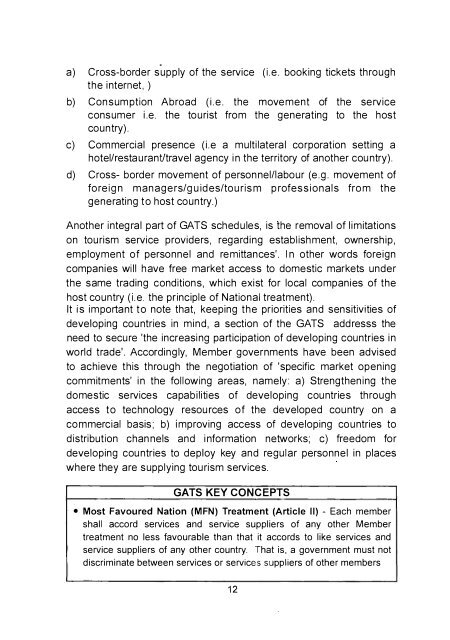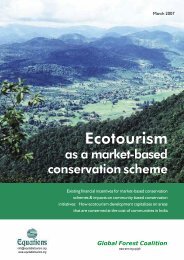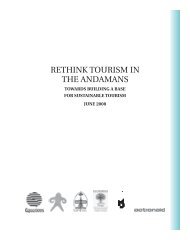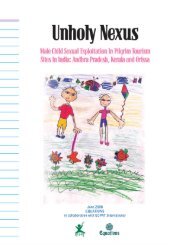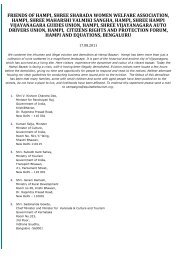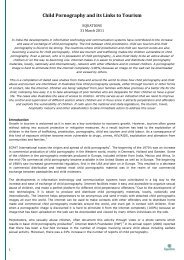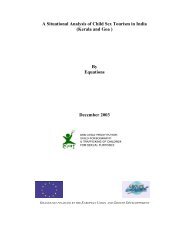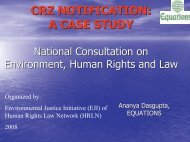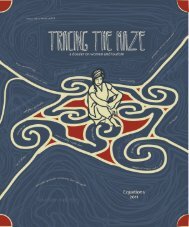Institution of Local Self Governance and its Linkages with Tourism
Institution of Local Self Governance and its Linkages with Tourism
Institution of Local Self Governance and its Linkages with Tourism
You also want an ePaper? Increase the reach of your titles
YUMPU automatically turns print PDFs into web optimized ePapers that Google loves.
a) Cross-border supply <strong>of</strong> the service (i.e. booking tickets throughthe internet, )b) Consumption Abroad (i.e. the movement <strong>of</strong> the serviceconsumer i.e. the tou rist from the generating to the hostcountry) .c) Commercial presence (i.e a multilatera l corporation setting ahotel/resta urant/travel agency in the territory <strong>of</strong> another country).d) Cross- border movement <strong>of</strong> personnel/labour (e.g. movement <strong>of</strong>foreign managers/guid es/tourism pr<strong>of</strong>essionals from thegenerating to host country.)Another integral part <strong>of</strong> GATS schedu les, is the removal <strong>of</strong> limitationson tou rism service providers, regarding establishment, ownership,employment <strong>of</strong> personnel <strong>and</strong> re mittances'. In other words foreigncompanies will have free market access to domestic markets underthe same trading conditions, which exist for loca l companies <strong>of</strong> thehost country (i.e the principle <strong>of</strong> National treatment).It is important to note that, keeping the priorities <strong>and</strong> sensitivities <strong>of</strong>developing countries in mind, a section <strong>of</strong> the GATS addresss theneed to secure 'the increasing participation <strong>of</strong> developing countries inworld trade'. Accordingly, Member governments have been advisedto achieve this through the negotiation <strong>of</strong> 'specific market openingcommitments' in the following areas, namely: a) Strengthening thedomestic services capabilities <strong>of</strong> developing countries throughaccess to technology resou rces <strong>of</strong> the developed country on acommercial basis; b) improving access <strong>of</strong> developing cou ntries todistribution channels <strong>and</strong> information networks; c) freedom fordeveloping countries to deploy key <strong>and</strong> regular personnel in placeswhere they are supplying tourism services.GATS KEY CONCEPTS• Most Favoured Nation (MFN) Treatment (Article II) - Each membershall accord services <strong>and</strong> service suppliers <strong>of</strong> any other Membertreatment no less favourable than that it accords to like services <strong>and</strong>service suppliers <strong>of</strong> any other country. That is, a govemment must notdiscriminate between services or services suppliers <strong>of</strong> other members12


